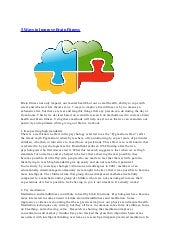
What's going on in the brain?īrain scans show there is a distinct neural pattern in the brain when you suddenly 'get it'.īut the process of getting to the aha moment is very individual, Dr Cropper said. See how many aha moments you get in the Aha! Challenge here. Once you've solved the problem, you then need to provide some information about how you felt about it: did you get an aha moment? Were you surprised? They're all brain teasers, and puzzles and tricks that are designed to elicit an aha event," Dr Webb said. "We're using techniques that are used in the insight literature. The Aha! Challenge tries to prompt an aha moment by getting people to tackle some tricky brain teasers and problems, and they can be pretty tough. "But I would like to think it does maintain in everyone." How do you research aha moments? "My feeling is that kids have it a bit more often - the world is a bit more wondrous to them, and they're a bit less battered down by reality. "We want to get a sense of how does it change as people develop, from young to old, across the lifespan," Dr Cropper said. The researchers are particularly interested in what happens to the intensity and frequency of aha moments as we get older. "We're really interested in a sample that is outside the university," Dr Webb said. and when these students started to have aha moments their attitude towards mathematics changed."ĭespite it being more than 2000 years since Archimedes had his 'eureka!' moment, we still don't know much about aha moments and the process of insight.Īnd much of what we do know is based on studies of undergraduate students.įor this reason, Dr Webb and her colleague Simon Cropper have teamed up with ABC Science to run the 'Aha! Challenge' as part of National Science Week, and they want people of all ages to take part. "For example, one study was looking at a class of students who hated mathematics. "The aha experience has been shown to be helpful for learning, memory, and motivation," said Margaret Webb, a psychology researcher at the University of Melbourne.

It's a process that relies on your relaxed brain, in contrast to the step-by-step process of logical problem solving, and it's usually accompanied by pleasure and surprise.Īha experiences are often special moments in our lives, and most of us have a story about one.īut they're also of great interest to psychology researchers keen to put their power to positive use.


Insight is characterised by a sense of confusion and feeling stuck, followed by a sudden realisation - the aha moment - when it all just falls into place. That's an "aha moment", and you've got to it through the process of "insight", a problem solving technique. You know that feeling when you've been grappling with a problem and finally a solution just arrives in your brain?


 0 kommentar(er)
0 kommentar(er)
